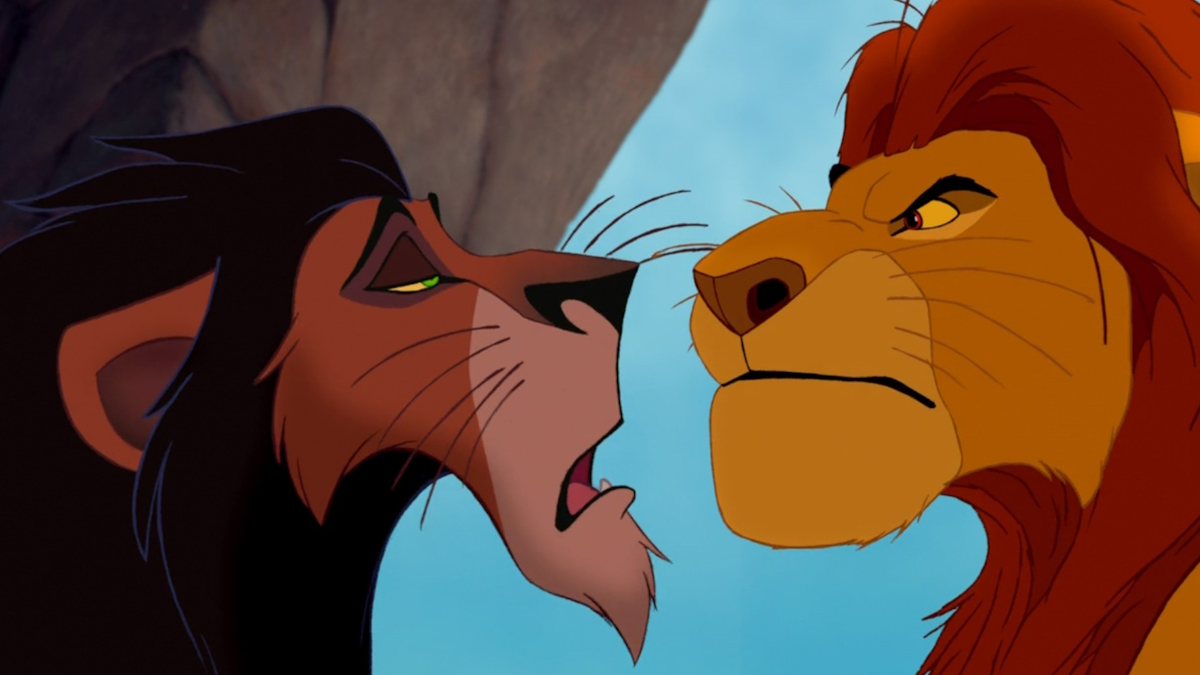
Since its inception in 1923 as the Disney Brothers Cartoon Studio, the world-famous movie studio Disney has inspired dreamers to dream big through enchanting stories, catchy music, and mesmerizing artistry. Of its hundreds of characters, some rise to be the cream of the crop.
While characters like Mickey, Donald, and Goofy enjoy iconic status, there are many others in the expansive Disney canon who are arguably richer with thematic depth, complex metaphors, and sometimes, just more pizazz. So who deserves recognition as the best of the best? Below, we rank the 32 greatest Disney characters responsible for making the longest-running animation studio in the world enjoy that record reputation.
For clarity, we’re omitting those that only became part of the Disney family after their creation. So there will be no mention of characters from Star Wars or Marvel (or even Power Rangers, a Disney brand once upon a time) save for one exception. We’re also limiting the criteria to theatrically released feature films, so apologies to anyone hoping to see Disney TV characters like Kim Possible and Hannah Montana get their flowers. Lastly, there are no Pixar characters present either, because all of them are worthy of supporting their own list.
Without further ado, wish upon a star that your favorite made the cut as here are the 32 greatest Disney characters of all time.
32. Chernabog (Fantasia)
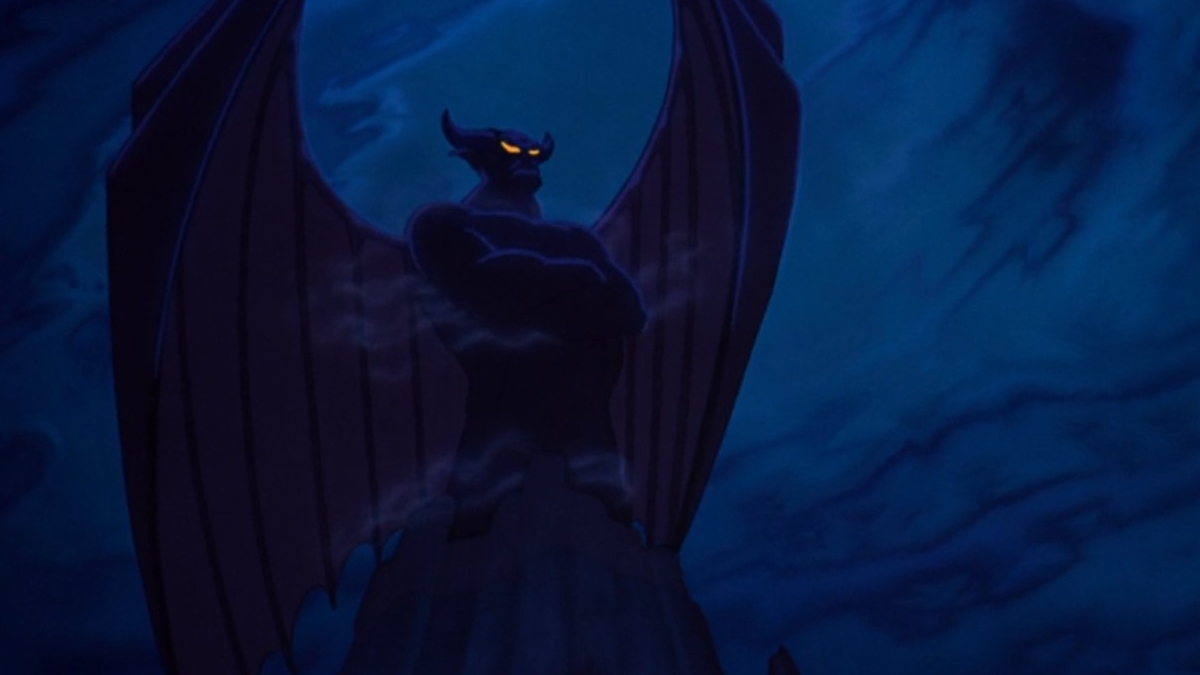
In the final segment of Disney’s 1940 animated musical anthology Fantasia, scored to Modest Mussorgsky's chilling 19th century piece “Night on Bald Mountain,” the demon lord Chernabog rises to reign over his dark legion until he is vanquished by the cleansing powers of morning light. With his imposing size, gargoyle features, and eldritch body movements, Chernabog is the image of evil incarnate, and he remains one of the most fearsome – and most unlikely – entities ever to exist in Disney. In 2002, Chernabog appeared as a boss in the video game Kingdom Hearts; on places like Reddit and YouTube, some gamers say that defeating him in battle ended their lifelong nightmares.
31. Baymax (Big Hero 6)
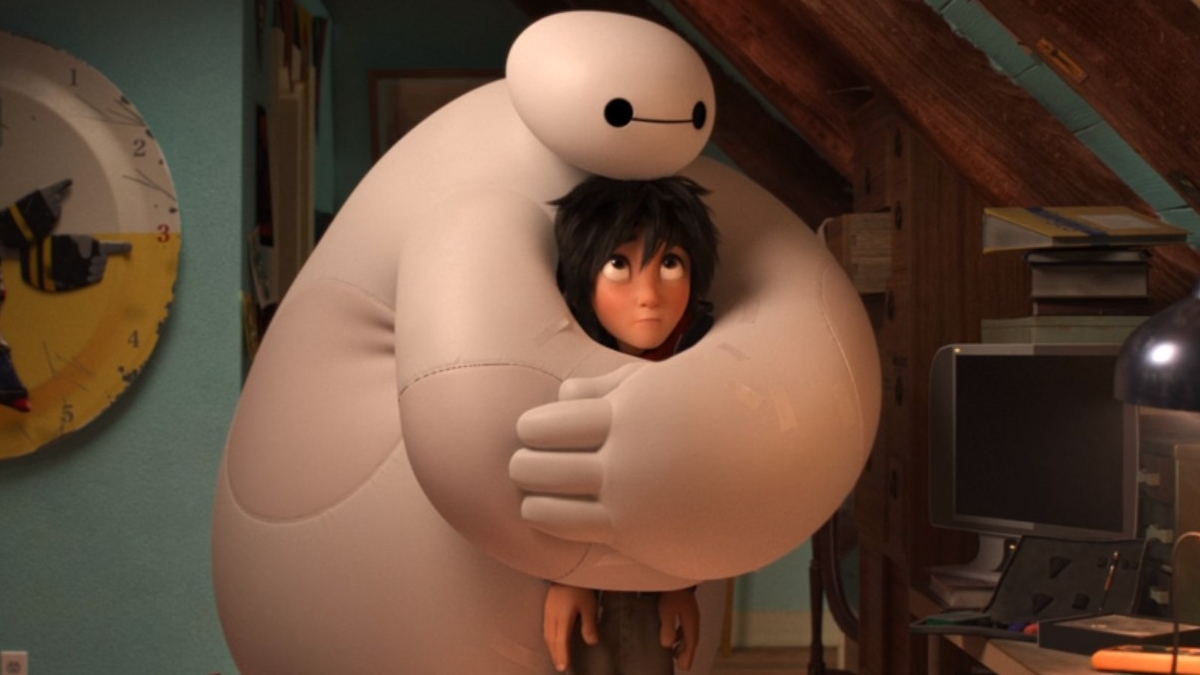
Strictly speaking, Baymax isn’t a Disney character. Like a lot of the best Disney movies, the Oscar-winning 2014 film Big Hero 6 is actually based on a pre-existing source text; in this case, a mighty-obscure Marvel Comics title. Still, the Disney film serves up a radically reimagined version of the story, including a different Baymax. Formerly a Gundam-like butt kicker, Disney’s Baymax is now an inflatable health care assistant ready to give hugs and lollipops to those who need it. (He is also voiced by 30 Rock alum Scott Adsit, whose performance impressively unearths ample heart and humor.) When Hiro Hamada loses his big brother, Baymax is there to help him become the hero he’s meant to be. With Baymax, we are all satisfied with our care.
30. Max Goof (A Goofy Movie)
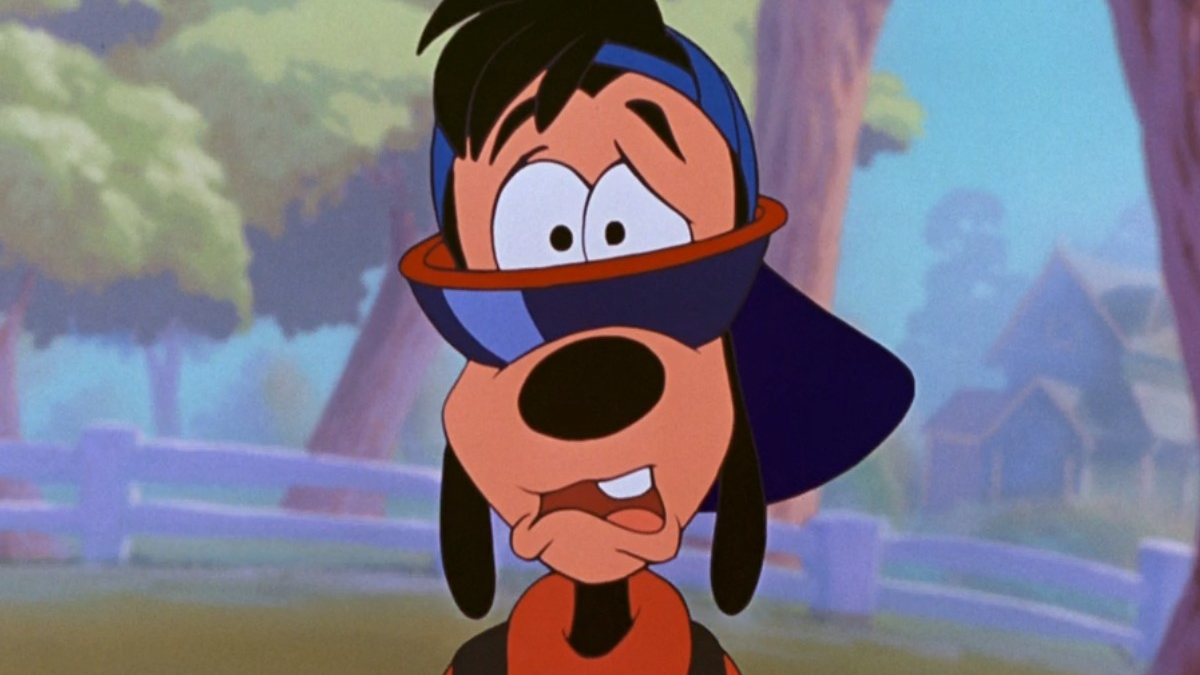
While Max’s origins as Goofy’s son date way back to 1951, his evolution into “Max Goof” took huge forward leaps in the millennial classic A Goofy Movie, released in 1995. In his modernized form, Max is an angsty 14-year-old plagued with all the problems teenagers have, including crushes, bullies, and square authority figures standing in their way. That Max’s dad drags him on a corny summer road trip only seems to amplify for him everything wrong with the world. While his baggy jeans and skateboard scream peak ‘90s, Max impressively embodies universal anxieties we all have about wanting to grow up and refusing to grow into lame echoes of our parents.
29. Nick Wilde (Zootopia)
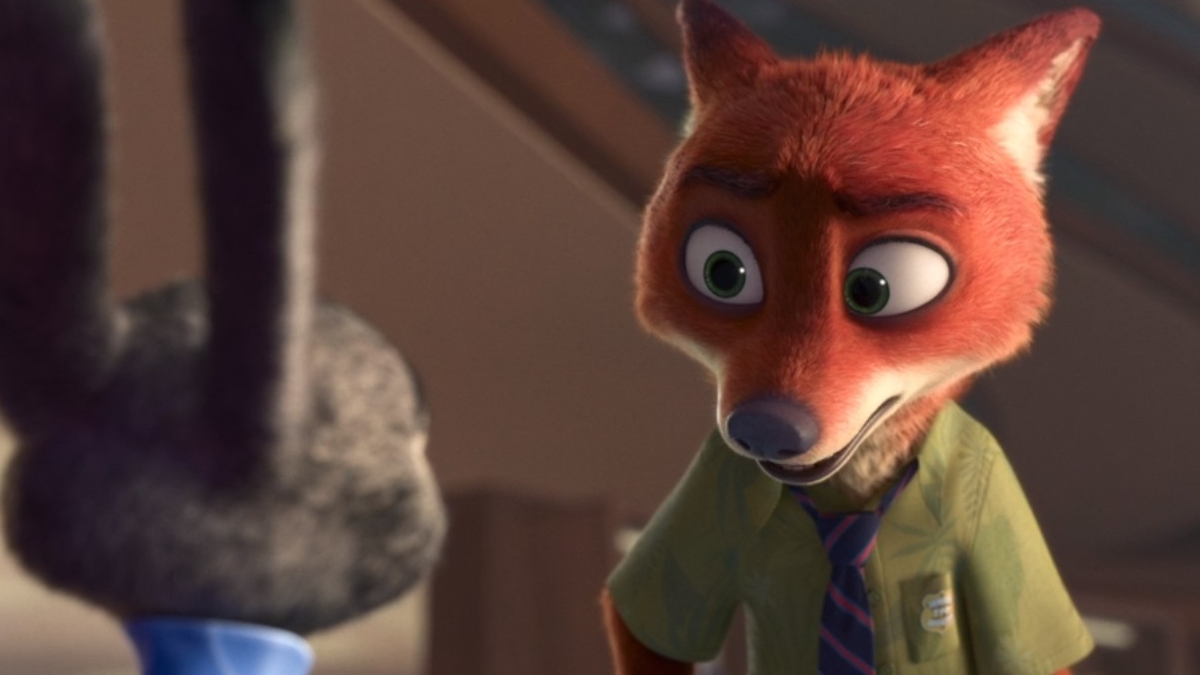
With a smug grin, his hands in his pockets, and wearing an untucked collared shirt with the relaxed vibe of an Office Space extra, Nick Wilde (voiced by Jason Bateman) is a most unusual Disney co-protagonist. A sleazy con artist with a silver tongue, Nick gets tied up with a type-A rookie cop working her first big case in the sprawling city of Zootopia. While in many ways Nick feels like the spiritual reincarnation of Disney’s foxy Robin Hood, you probably can’t trust Nick to rob from anyone and give the spoils to anyone else but himself.
28. Ursula (The Little Mermaid)
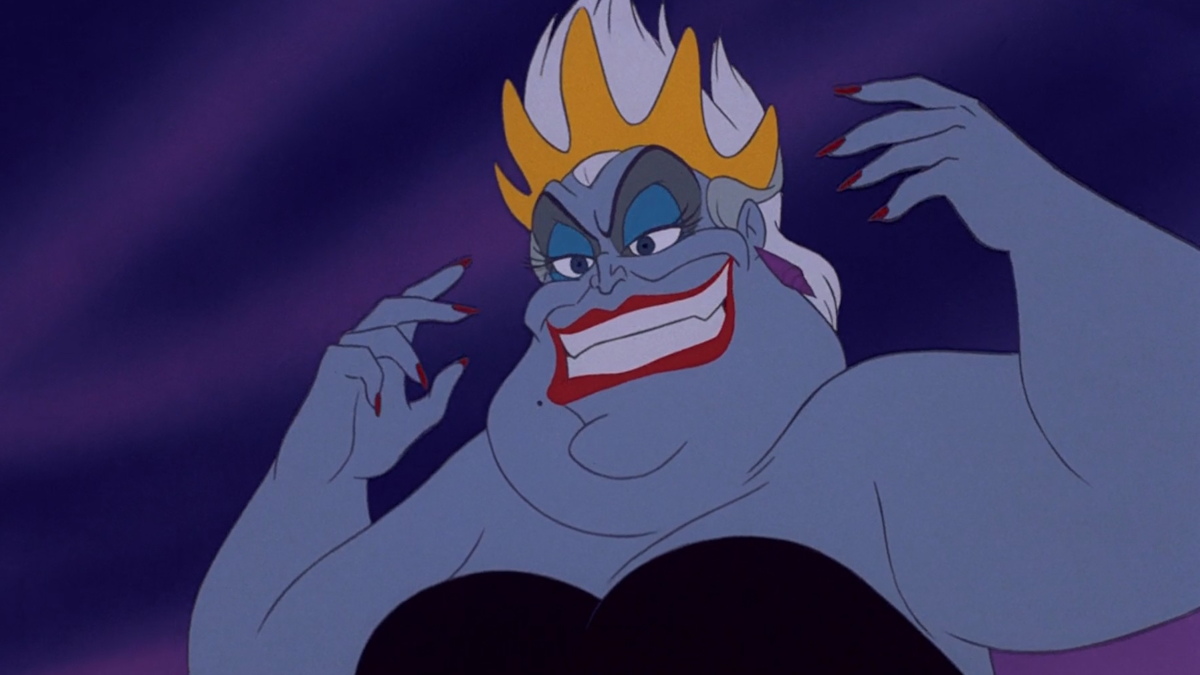
Disney kicked off a new era of reinvigorated creativity and box office success with 1989’s The Little Mermaid; among its many colorful characters under the sea is the villainous sea witch Ursula. Voiced by Tony Award-nominee Pat Carroll and sporting a visual design inspired by drag artist Divine, Ursula is a half-mollusk mermaid and plus-sized queen whose duality is that she is willing to help anybody, so long as she knows she can benefit from them. So when the beautiful princess Ariel comes to her, Ursula grants her wish of human legs but robs her of her voice, ensuring that Ariel’s story is all about the dangers of getting what you asked for. Her song “Poor Unfortunate Souls” is not only a camp karaoke favorite, but a forerunner to virtually all the Disney villain songs throughout the Disney Renaissance.
27. Gaston (Beauty and the Beast)
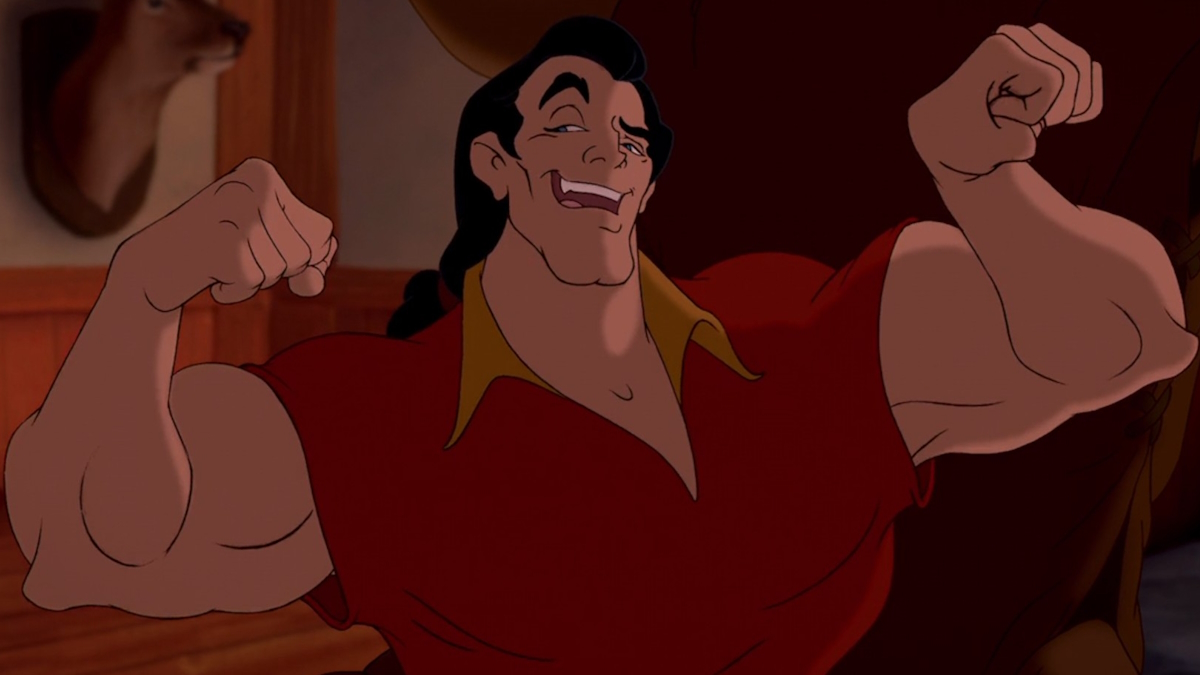
Don’t give him a book without pictures. Gaston, the beefy hunter who pines for bookish Belle in Beauty and the Beast, has inexplicably grown into an internet darling with actual fans online. Honestly, it’s not hard to see why. His arrogance about his masculinity may be toxic, but it’s also genuinely hilarious that dangerously teeters towards endearing. (His “villain” song is also very catchy, wisely framed with other people singing about how great he is instead of Gaston himself.) Gaston was conceived for the film by screenwriter Linda Woolverton, who told the L.A. Times in 1992 his creation and characterization was inspired by some of her own real-life exes. “It was a lark writing that character,” Woolverton said, “He had to be credible, a worthy opponent, full of himself yet charming – someone you’d go out with once or twice.”
26. Mulan (Mulan)
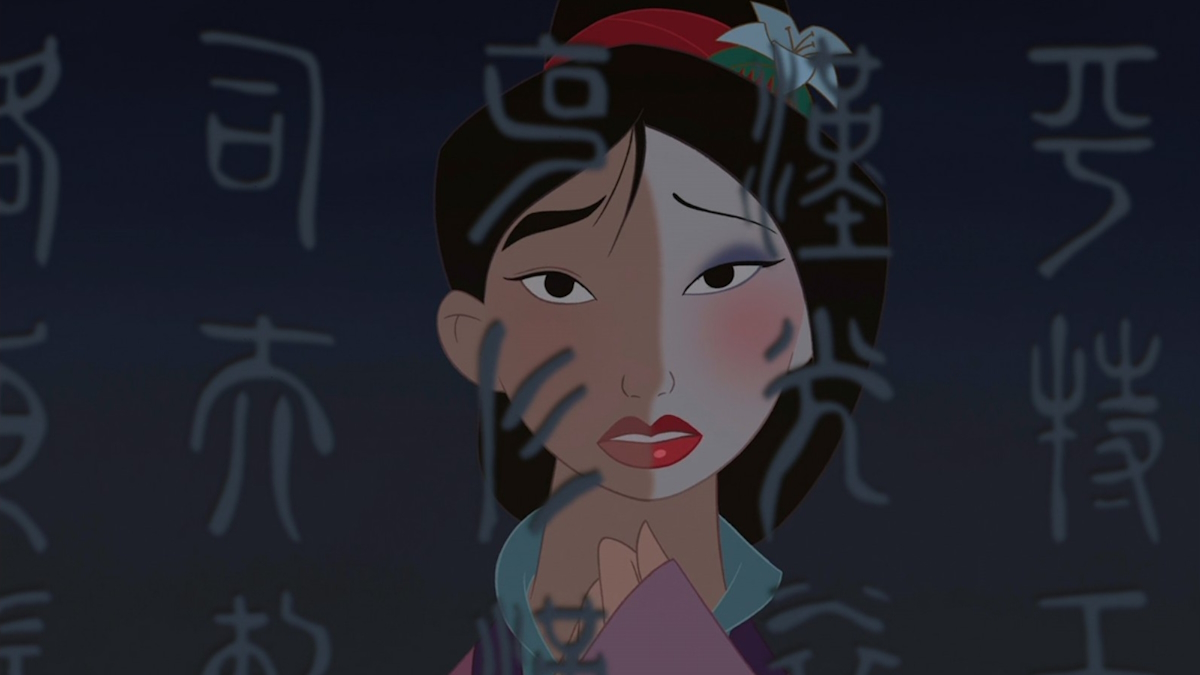
The search for strong, empowered female heroines is more than just receiving a yes answer to the question: “Can she beat up bad guys real good?” But Mulan, with the speaking voice of Ming-Na Wen and the singing voice of the indelible Lea Salonga, is so much more than just a Disney princess who could swing a sword. Based on a Chinese folk tale, Mulan is famously a young woman who disguises herself as a man to join the army. With her story exploring identity, family duty, and gender expectations, Mulan reflects anyone who wants to make their family proud but find themselves held back by asinine restrictions. Prior to Mulan, Disney’s roster of princesses rarely, if ever, got in on the action; remember, it was Prince Philip who rode his horse to battle against Maleficent’s dragon and Prince Eric who rammed his boat into Ursula’s gut. But after Mulan crossed swords with the Huns, Disney’s princesses finally had space to grow beyond singing in high towers.
25. Mufasa (The Lion King)
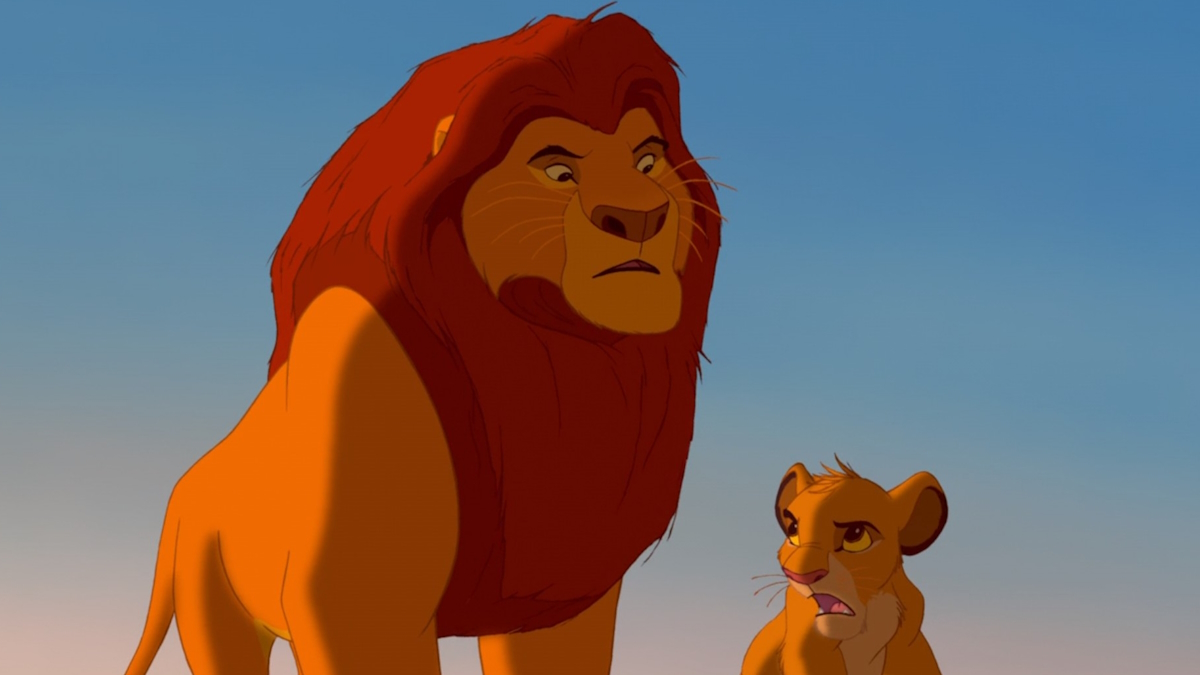
With the thunderous voice of Darth Vader (actually, decorated actor James Earl Jones), Mufasa was a respected king and a loving father, oftentimes playing both roles effectively at once. While he had deep warmth and a remarkable sense of humor, nothing about his good side betrayed the bone-chilling ferocity he possessed and could turn on seemingly at demand. (When Zazu tells Simba simply “Good luck” after he disobeyed him by going to the Elephant Graveyard, man, we felt that.) The Lion King is an achievement as a coming-of-age picture, with Mufasa being an effective surrogate father figure for all of us.
24. Jack Skellington (The Nightmare Before Christmas)
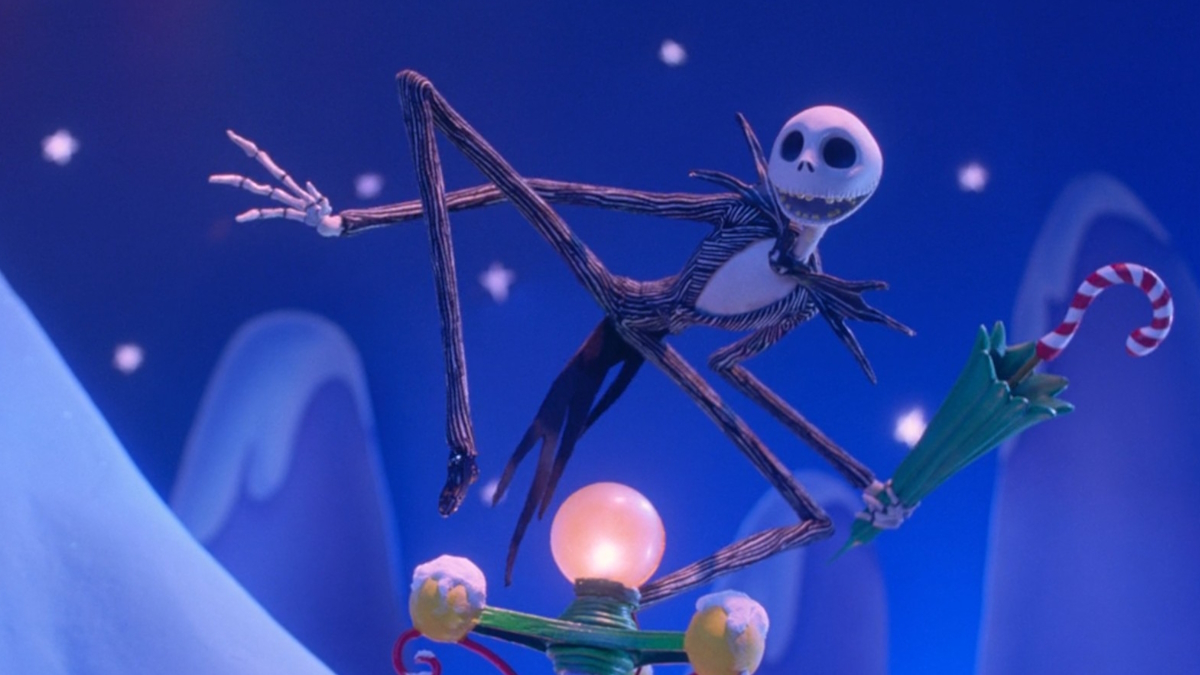
What’s this? What’s this? Why, it’s a visually macabre character having an adorable and joyous experience! The lead hero of the impeccably animated The Nightmare Before Christmas, Jack Skellington is a sharp-dressed, eerily slender skeleton from Halloween Town who stumbles into neighboring Christmas Town and tries to share the magic of his discovery, only to end in disastrous results. Voiced by both Chris Sarandon and Danny Elfman, Jack Skeleton moves like a spider but smiles like an elf at the sight of snow, splitting the difference between spooky and splendid. Someone like Jack Skellington should frighten you. But if all he wants is to spread some Christmas cheer, can you really be scared?
23. Ariel (The Little Mermaid)
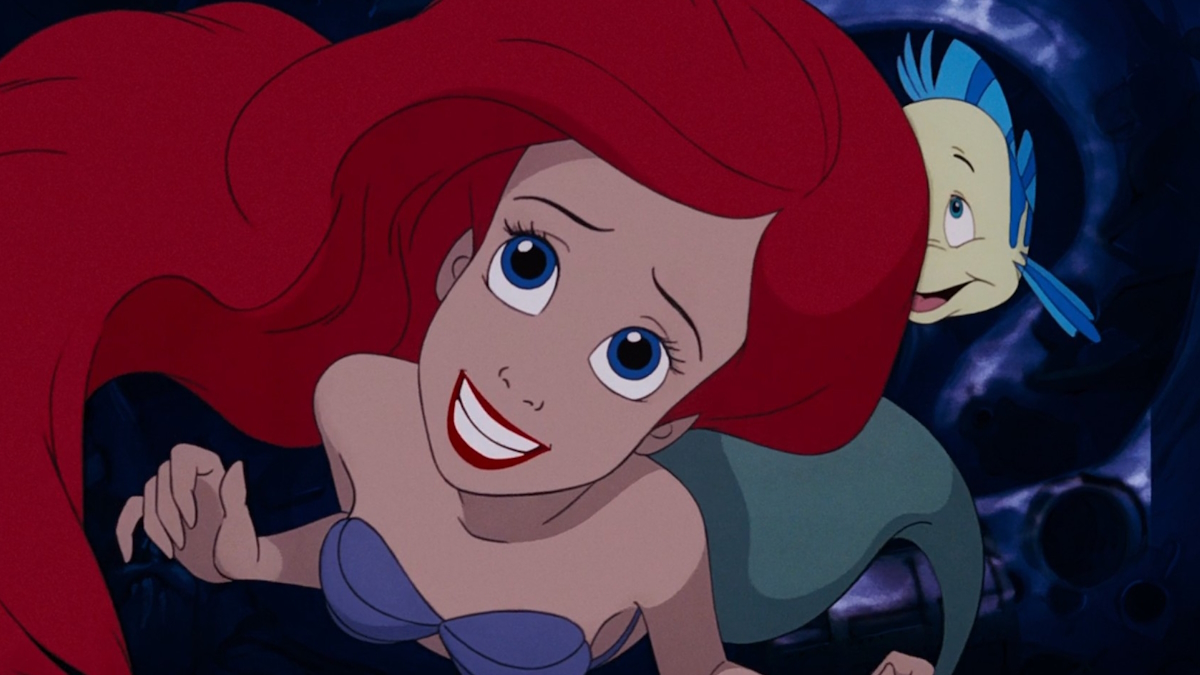
The Little Mermaid reinvigorated Disney on almost all fronts, including creatively and financially. While the smash hit movie brims with memorable characters, all of them float around Ariel, the red-haired beauty who only dreams to be part of another world. Voiced by actress and singer Jodi Benson, Ariel was visually modeled after Christie Brinkley and Alyssa Milano, with Sherri Stoner providing physical reference for the animators (including Stoner’s own habit of biting her lower lip). As a character, Ariel represents anyone struck with FOMO; she’s a mermaid, yet all she yearns to do is walk around the surface world. She’s proof that you can have it all, and yet still want more.
22. Bambi (Bambi)
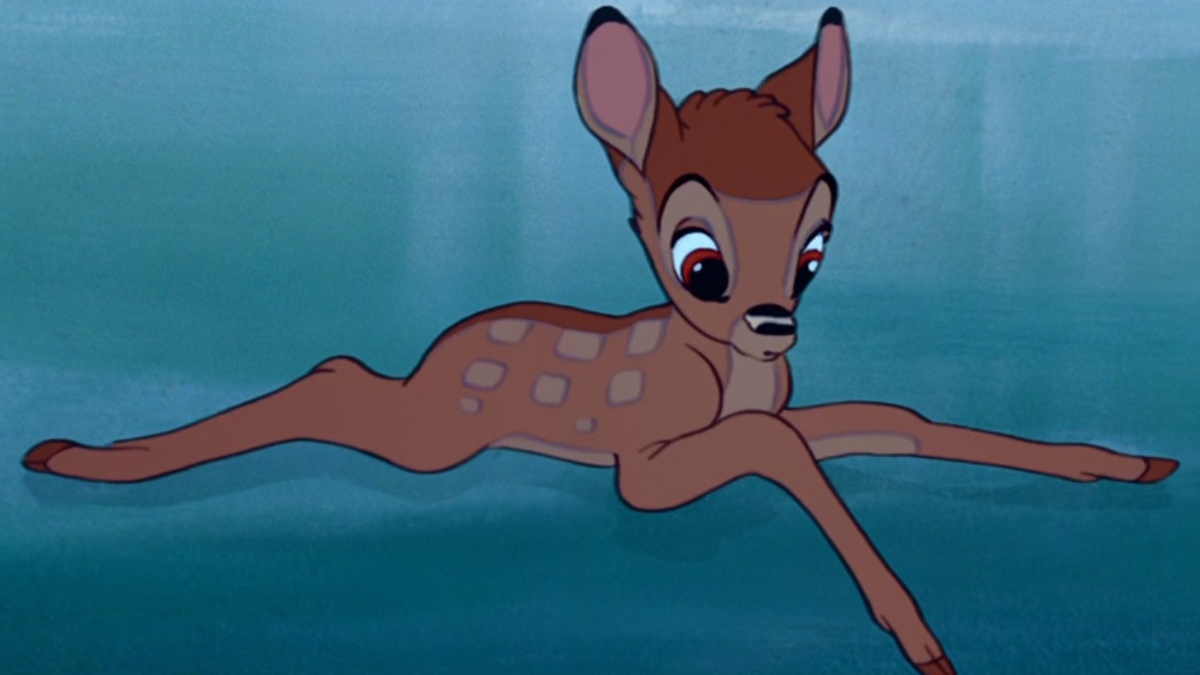
People often joke about their shared trauma from seeing Bambi's mother die. But truth is, Bambi (the movie) was and still is one of the first movies that teach children the grisly unknown of death in unambiguous terms. Bambi himself is a remarkable character to tell such a story; soft in his heart but strong in spirit, Bambi's remarkable growth into adulthood after senseless injustice can illuminate everyone, children and adults alike, on how to keep on living even when it all seems over. Bambi may always be a mama's boy, but his resilience to build community and even find love means he's as defined by what he gains as what he loses.
21. Maleficent (Sleeping Beauty)
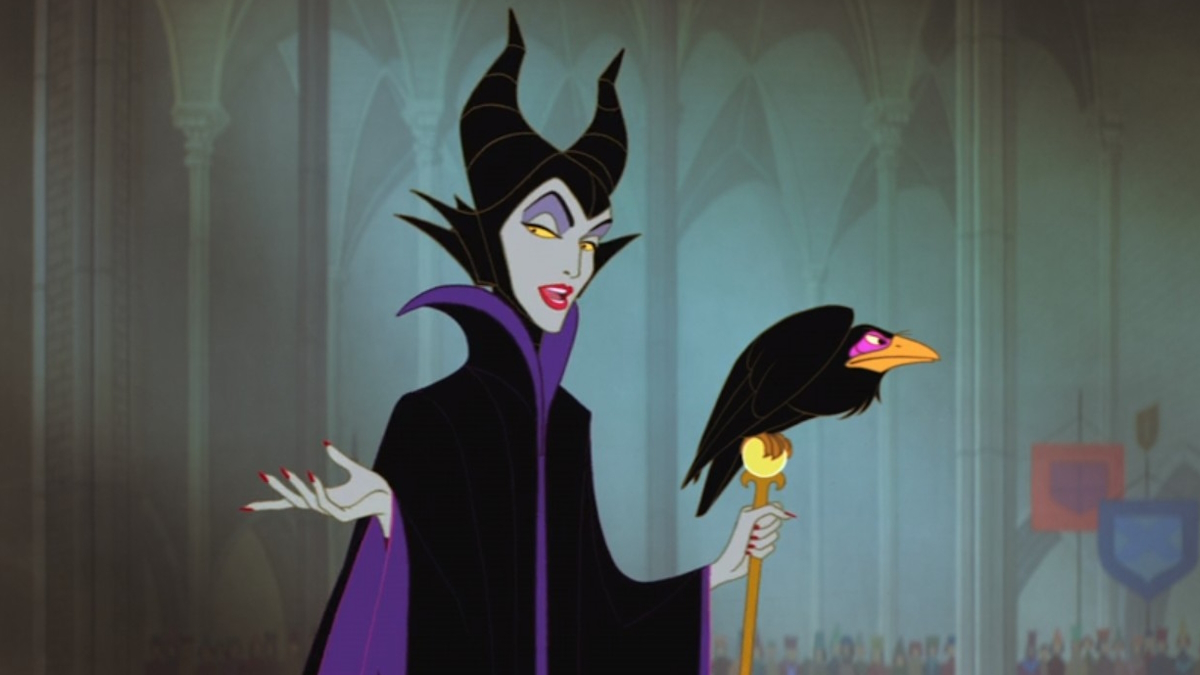
While her status as the definitive witch-queen of Disney is contested by, well, the Queen (of Disney’s foundational hit Snow White and the Seven Dwarves), Maleficent edges out Snow White’s evil stepmother by a narrow margin through a combination of style, story, and a more comprehensive grasp of the mystic arts. While the Queen is simply jealous that Snow White’s beauty may eclipse her own – thus telling a story about age and vanity – Maleficent is just beautifully petty. Maleficent kicks off Sleeping Beauty by placing a curse on the newborn Aurora, all because her parents didn’t invite her to their party. Who among us hasn’t wanted to curse some “friends” after you find them all hanging out without you? For that reason, let’s recognize Maleficent as the most real one.
20. Mary Poppins (Mary Poppins)
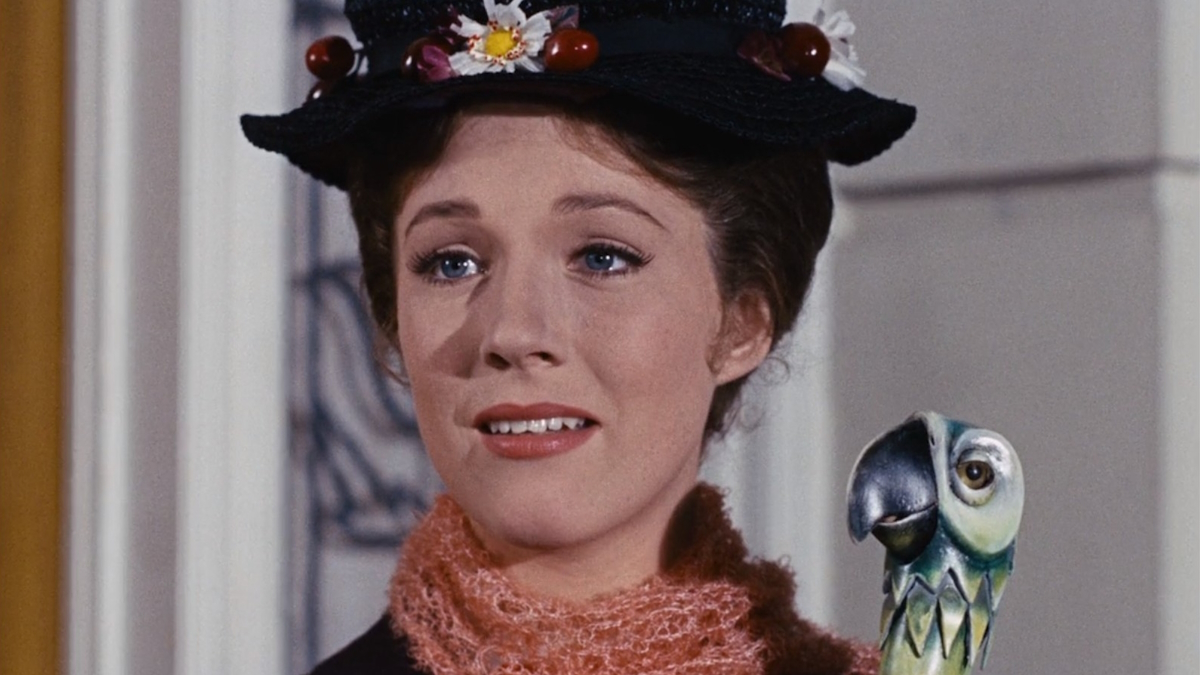
With the release of Mary Poppins in 1964, Julie Andrews swooped down from the sky and into our hearts as the babysitter — sorry, nanny — that we all wished we had. Though the point of her character isn’t her magic, of which she’s quite nonchalant about, but how some structure, a positive vibe, and a spoonful of sugar can inspire everyone to be their best selves. Still, we’ve got to ask: Where did she come from? What is the source of her powers? Are there more of her? And where does she fly off to? Even a 2018 sequel, with Emily Blunt in the role, refuses to reveal more of her lore. But who needs lore when there are kites to be flown?
19. Jiminy Cricket (Pinocchio)
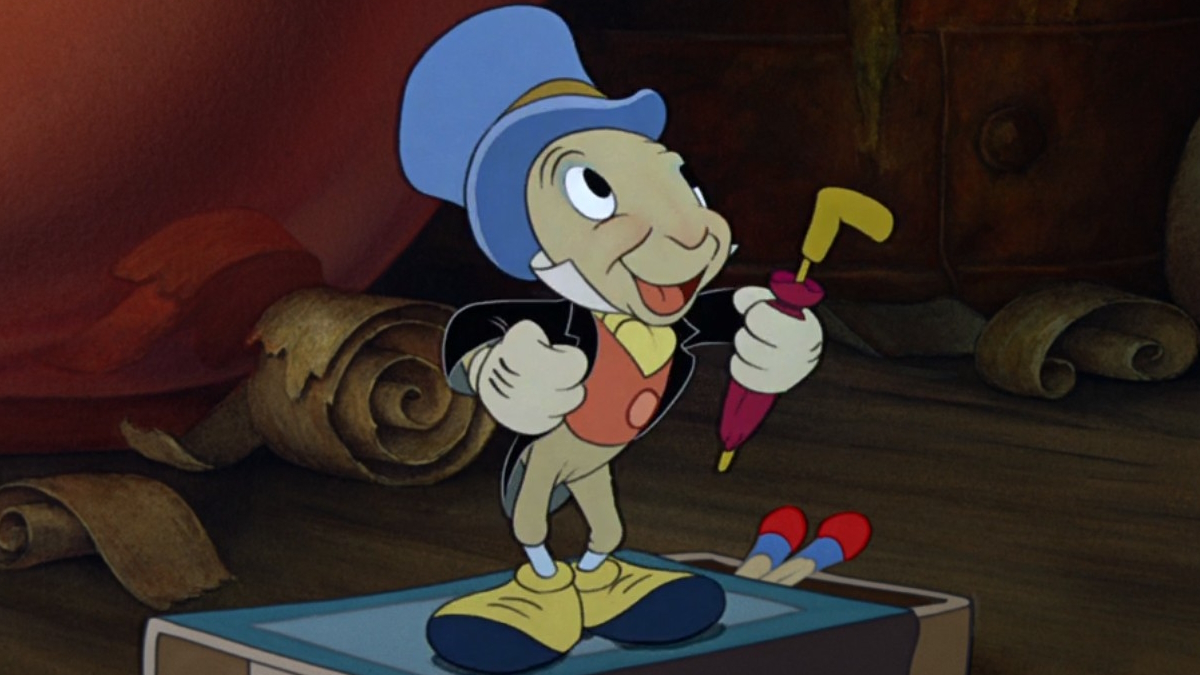
He’s a character so iconic, his music is the official fanfare for all of Disney. A prominent figure in the 1940 classic Pinocchio, Jiminy Cricket isn’t just a dapper gentleman but the designated conscience for young Pinocchio as he grows into a real boy. Though an unnamed minor character in the original Italian novel, Jiminy became more fleshed out by the filmmakers of Pinnochio. He was animated by Ward Kimball, who was actually on the verge of quitting Disney after his work on Snow White was omitted from the final version. Walt Disney himself persuaded Kimball to stay and supervise the creation of Jiminy. With his signature songs like “When You Wish Upon a Star” and “Give a Little Whistle” (performed by his original voice actor, Cliff Edwards), it’s hard to imagine a reality where Jiminy wasn’t there to teach us all how to dream big.
18. Bruno (Encanto)
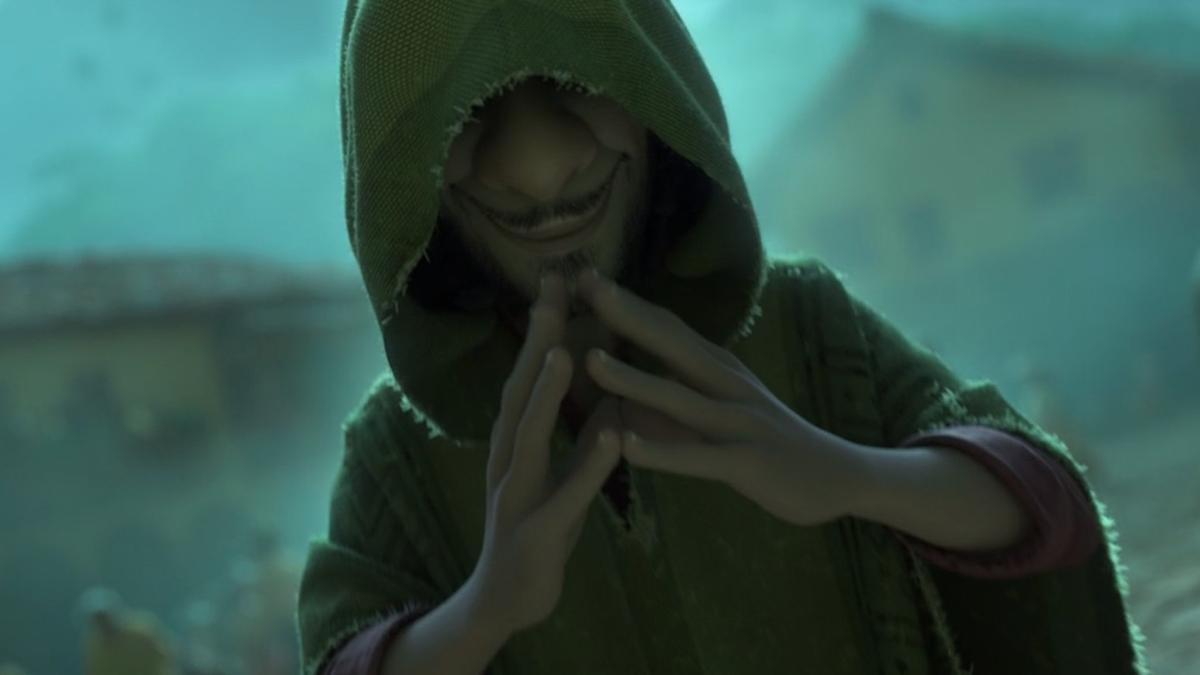
We need to talk about Bruno. Throughout the first hour or so of Encanto, Disney’s colorful 2021 animated musical hit, Mirabel Madrigal is forbidden from knowing more about her ostracized uncle Bruno (John Leguizamo). In the viral chart-topper “We Don’t Talk About Bruno,” Mirabel learns that Bruno’s creepy power of foresight, which often resulted in unfortunate outcomes, deemed him a curse upon the local townspeople. As a metaphor for mental illness and the repressed shame families feel when one of their own falls short of societal standards, Bruno is easily one of the most thematically captivating Disney characters in years. His frightful imagery and heartbreaking reality make him stand out as a “villain” who is actually anything but.
17. Flynn Rider (Tangled)
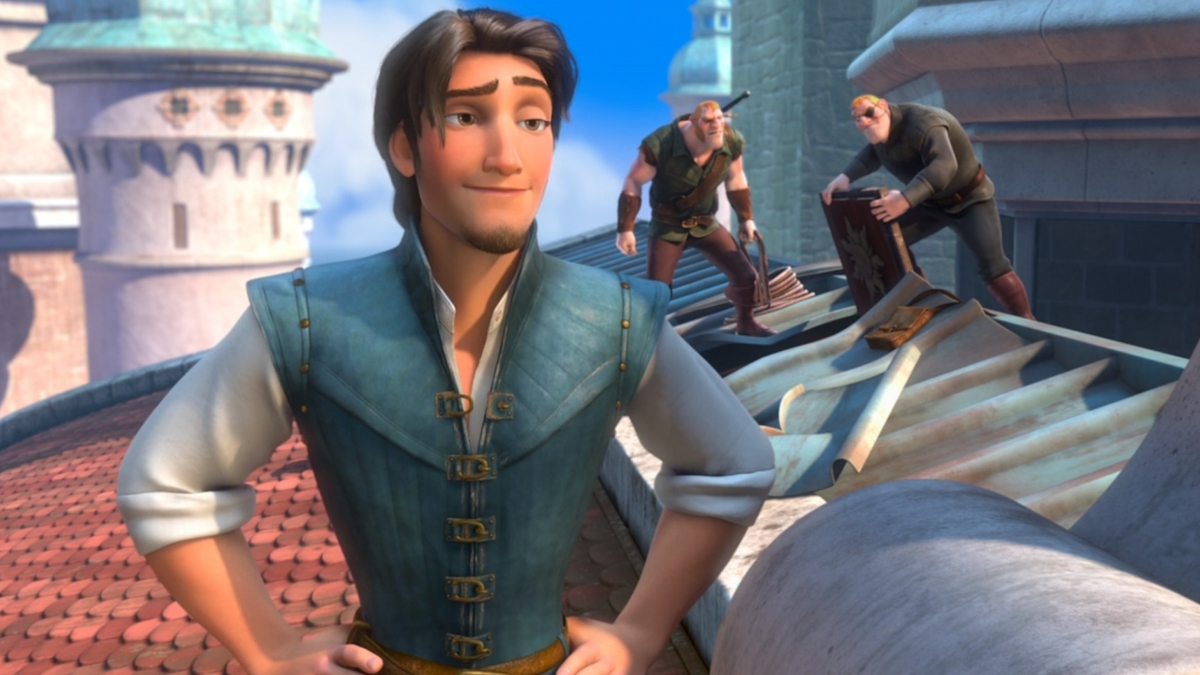
In the making of the 2010 hit Tangled, Flynn Rider was crafted by screenwriter Dan Fogelman and directors Nathan Greno and Byron Howard as a means to get Rapunzel out of her tall tower. Instead of a rudimentary prince to rescue her, they came up with a thief and a scoundrel in the spirit of Errol Flynn’s Robin Hood and Harrison Ford’s Han Solo. (Fun fact: The filmmakers held a series of “Hot Man Meetings,” in which female employees were invited to talk about their male celebrity crushes as research to create Flynn.) Voiced by Zachary Levi, Flynn has become an enduring fan favorite and a prime example of the “himbo” archetype that populates the Disney canon. With an intelligent sense of humor and self-confidence, Flynn successfully foreshadowed the anti-heroic tones of many male characters in the coming decade.
16. Cinderella (Cinderella)
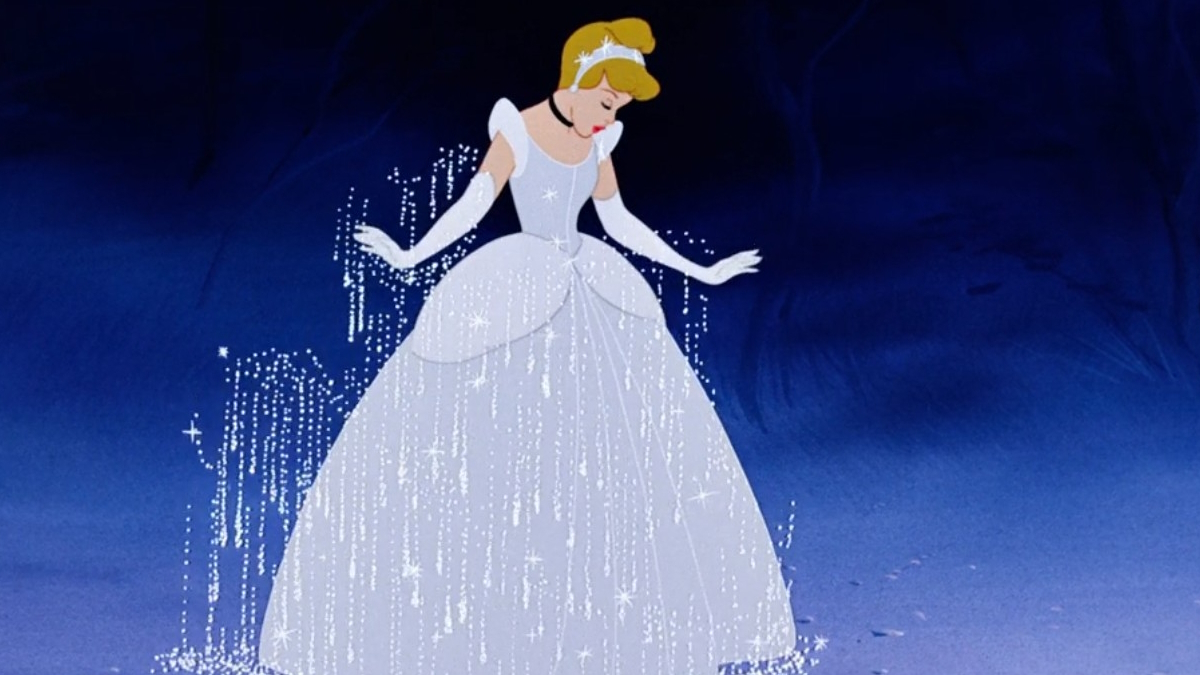
It’s a misconception that Cinderella wished to look beautiful and wear an elegant dress to dazzle Prince Philip. Yeah, there was that whole thing about their arranged marriage from the start. But when her fairy godmother granted her wish to attend the ball, she didn’t actually know who he was; she just wanted to party! For that reason and more, Cinderella ranks high across the Disney empire. Memorably voiced by Ilene Woods, Cinderella may feel like plain vanilla given her prototypical status as one of the first big Disney princesses. (Snow White may have been first, but Cinderella rode in on the sickest pumpkin whip magic can conjure.) But it’s precisely her timelessness and universally inspirational story that cements Cinderella as an all-timer. There’s a reason that even the hardest-hitting underdog athletes enjoy what is called a “Cinderella story” in their rise to stardom.
15. Aladdin (Aladdin)
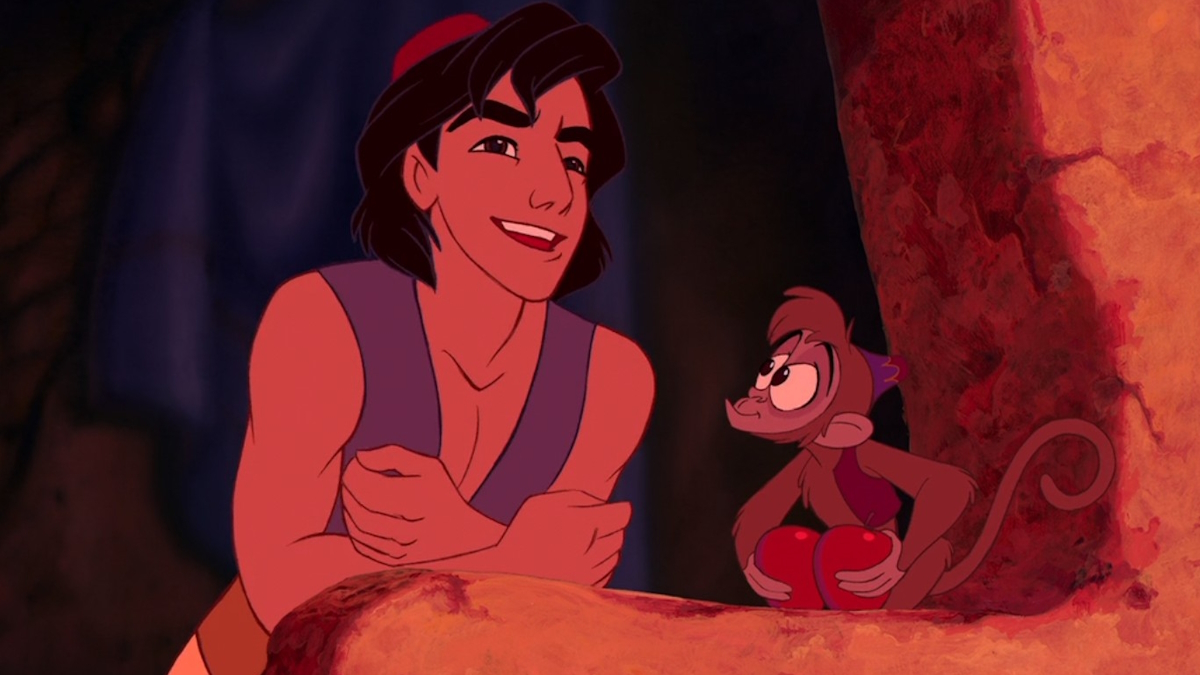
When you’re in a movie featuring a cunning villain and a metaphysical genie voiced by Robin Williams – the patron saint of improv comedy – it’s hard to stand out as a main character. Which is why Aladdin, voiced by Scott Weinger, actually deserves more recognition. A streetwise street urchin who impersonates a prince to dazzle Princess Jasmine, Aladdin champions the lesson that all you really need to be is yourself. That’s easier said than done of course, which is why it helps that he’s got Genie to back him up. But even without Genie, Aladdin already showed himself to be resourceful, charismatic, and boasting a keen survival instinct. Sure, he gets duped into walking into a booby-trapped cavern by Jafar (disguised as a strange old man), but at least that worked out in the end.
14. Elsa (Frozen)
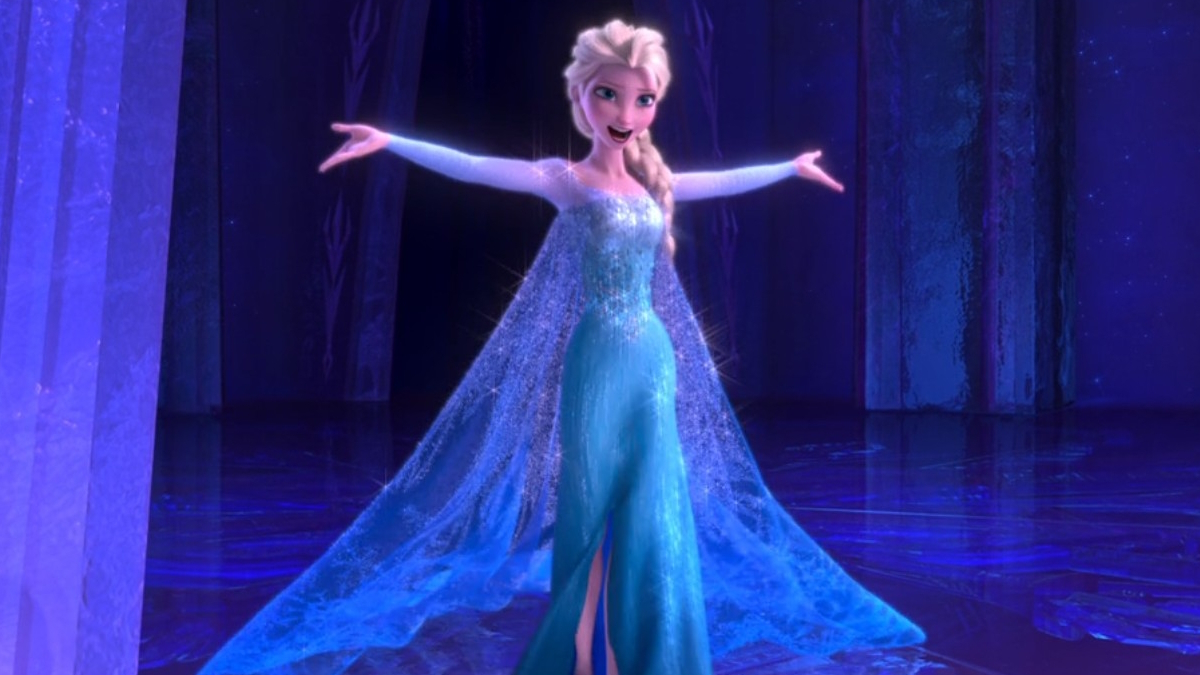
The cold never bothered her, anyway. The center of Disney’s seismic 2013 smash Frozen is Princess Elsa, the cool Scandinavian royal whose mastery over ice and snow accidentally plunges the kingdom of Arendelle into a deep winter. A multi-dimensional avatar for self-acceptance, outsiders unable to conform to society’s norms, and a subversion on the tired “true love” trope that Disney itself is largely responsible for establishing, Elsa is such a titan of a character that her being voiced by Broadway juggernaut Idina Menzel is what some video gamers would describe as “OP.” While parents may still have some PTSD from endless repeats of “Let It Go,” no one can deny the chilling appeal of Elsa.
13. Hades (Hercules)
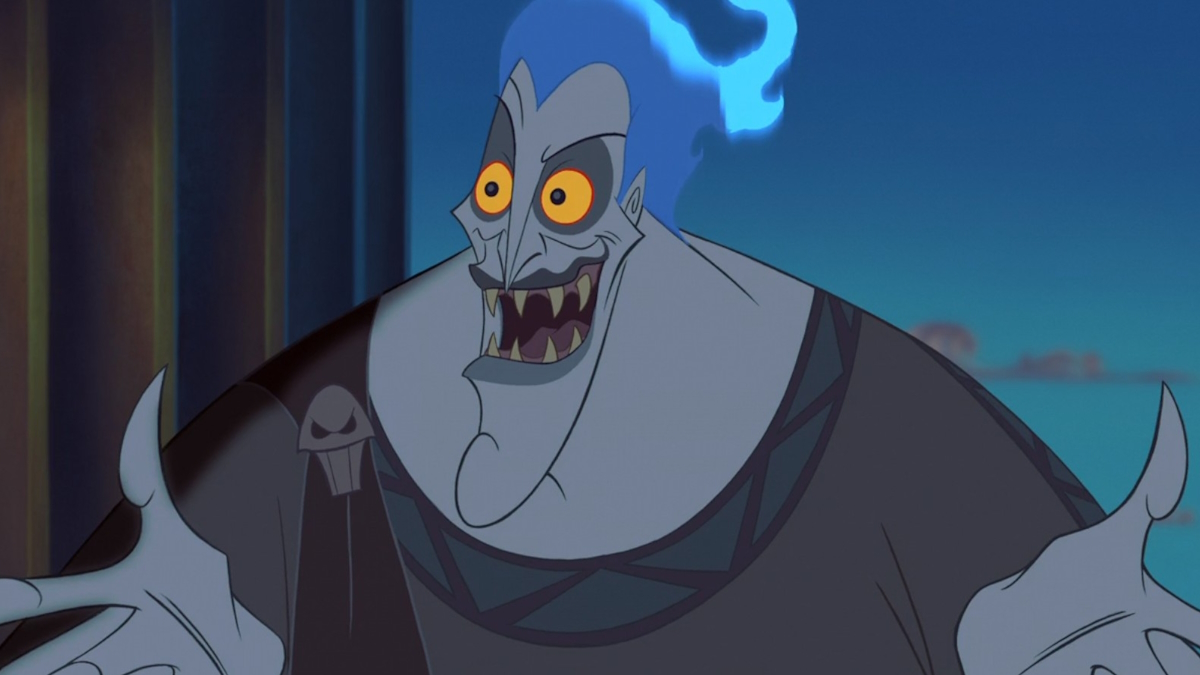
When you think of the Greek god of the underworld, James Woods’ Hades from the late ‘90s classic Hercules is both the first and last person you would imagine. Though his hair of blue fire, ghastly pale skin, and bear trap teeth are appropriately eerie, his sardonic humor and resentment of his position make him one of the most authentically relatable characters. Actor Jack Nicholson was first approached to play Hades, but he turned away when salary negotiations broke down. After auditions were held with James Coburn, Kevin Spacey, and Martin Landau, the filmmakers invited James Woods to try out just shy of 20 months before the release date. Recalled Disney journalist Jim Hill in a blog post published in April 2000, Woods asked the filmmakers for direction when he was told that Hades was “charming but ruthless” and “capable of doing anything” to get ahead. Woods quipped, “Sounds like some studio executives I know.”
12. Timon and Pumba (The Lion King)
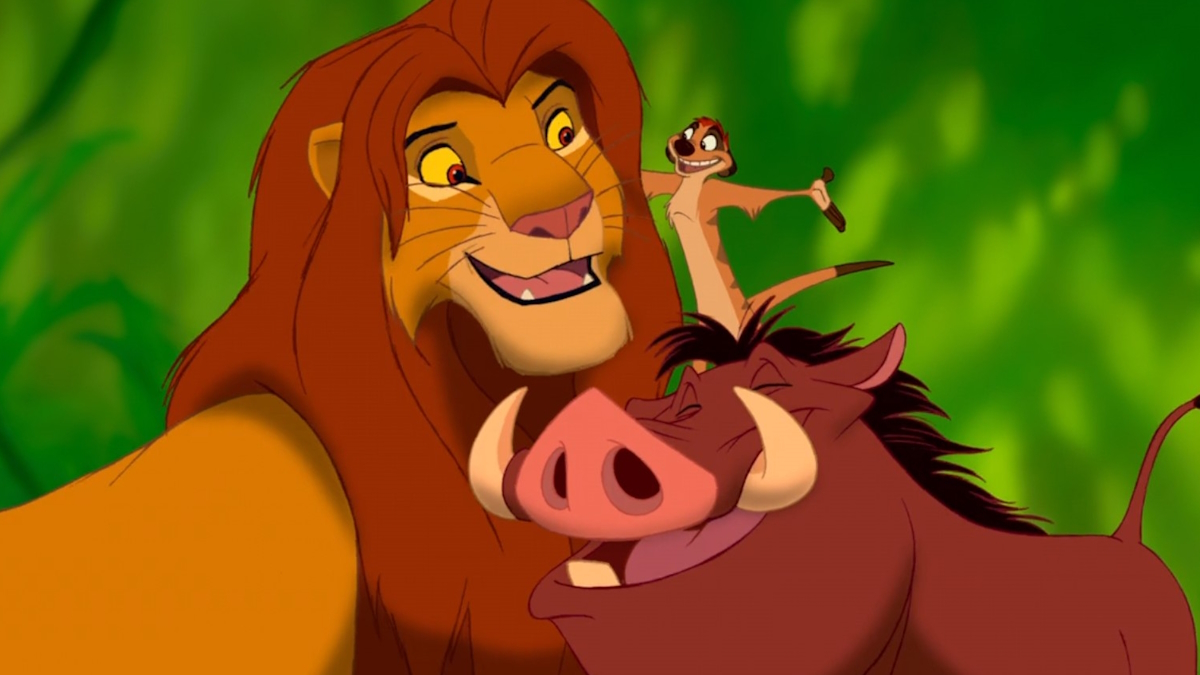
Are you achin'? Yup yup! For some bacon? Yup yup! With The Lion King acting as a retelling of Shakespeare’s Hamlet in an African savannah, there’s fast-talking meerkat Timon and the flatulent warrior warthog Pumba (voiced by Nathan Lane and Ernie Sabella respectively in the 1994 classic) as its Rosencrantz and Guildenstern. As outsiders and best friends, Timon and Pumba rescue Simba from vultures and teach him how to just chill out, and to have no worries. (“Hakuna Matata, what a wonderful phrase!") Though their relaxed vibes threaten to dull Simba from taking his rightful claim to Pride Rock, they remain loyal to Simba when the would-be king makes his epic return. Their rapid-fire humor and infectious charm make it easy to understand why they have starred in umpteen spin-offs off the original, including their own television series of 85 episodes.
11. Frollo (The Hunchback of Notre Dame)
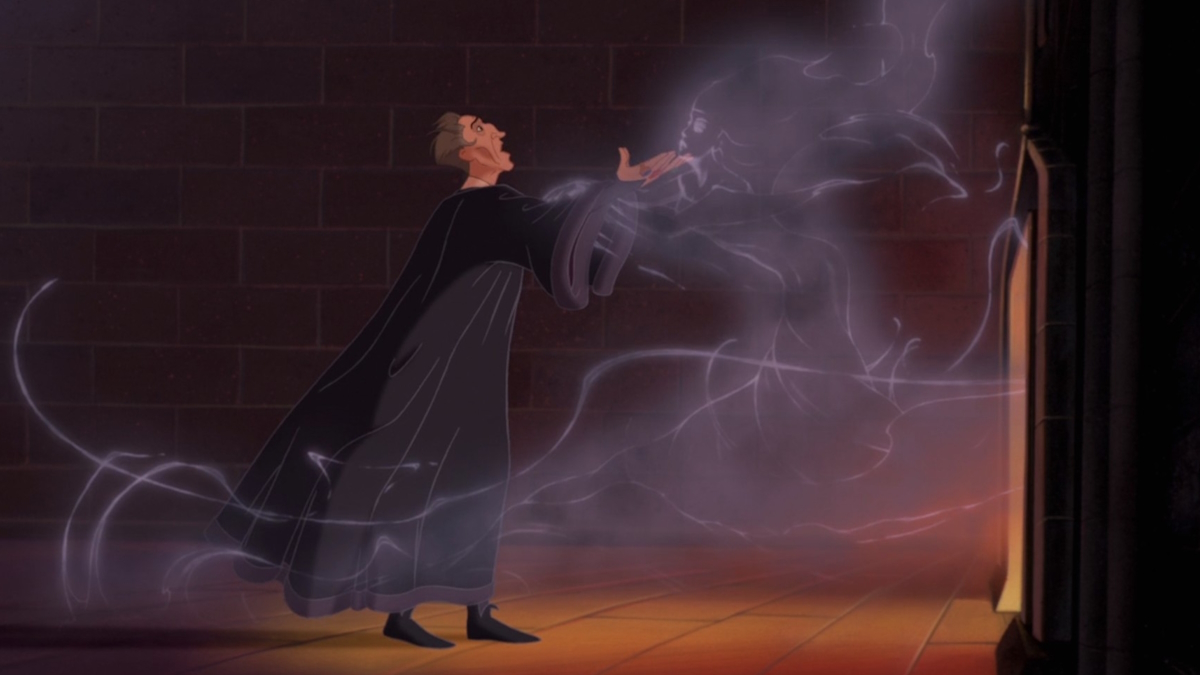
Frollo, from The Hunchback of Notre Dame and voiced by the late Tony Jay, is one of the most frightening Disney villains of all time. But it’s not because of his mastery over magic or his tyrannical rule as a king. It’s because Frollo is real. A pious man in a position of power, Frollo stands for every hypocritical theocratic figure who reason that their own sins are, in fact, the will of God. That includes his hatred towards the Roma people, his desire to expel them from Paris, and his lust for one of their own, Esmeralda. His unforgettable song “Hellfire” contains some of the most stone-cold lines ever sung in Disney. (“It’s not my fault, if in God’s plan, he made the Devil so much stronger than a man” and “Destroy Esmeralda, and let her taste the first of hell, or else let her be mine and mine alone.”) Villains like Frollo truly exist in the real world, and children watching The Hunchback of Notre Dame might find it instructive in how to spot them.
10. Baloo (The Jungle Book)
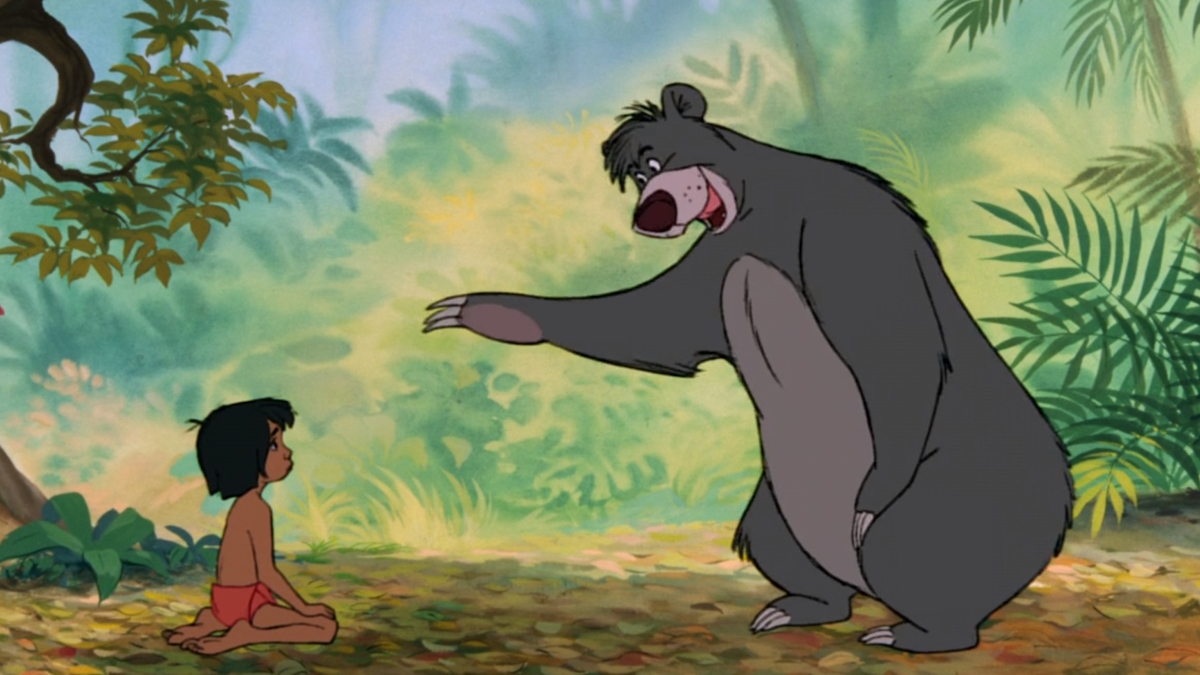
Before a meerkat and a warthog taught Simba how to chillax, there was the big sloth bear Baloo, voiced by Phil Harris, who showed Mowgli how to live without wanting more than what Mother Nature can give. With smooth dance moves and an infectious vibe that makes you want to kick back, Baloo is the true muse for anyone wanting a good time. His song “Bare Necessities” is similarly a jazzy, stripped down alternative to the bombast that is “Hakuna Matata.” In a 2007 making-of documentary released with the movie’s 40th anniversary DVD, Phil Harris was said to have improvised almost all of his lines, which is only appropriate for a character who takes things as they go.
9. Tigger (Winnie the Pooh)
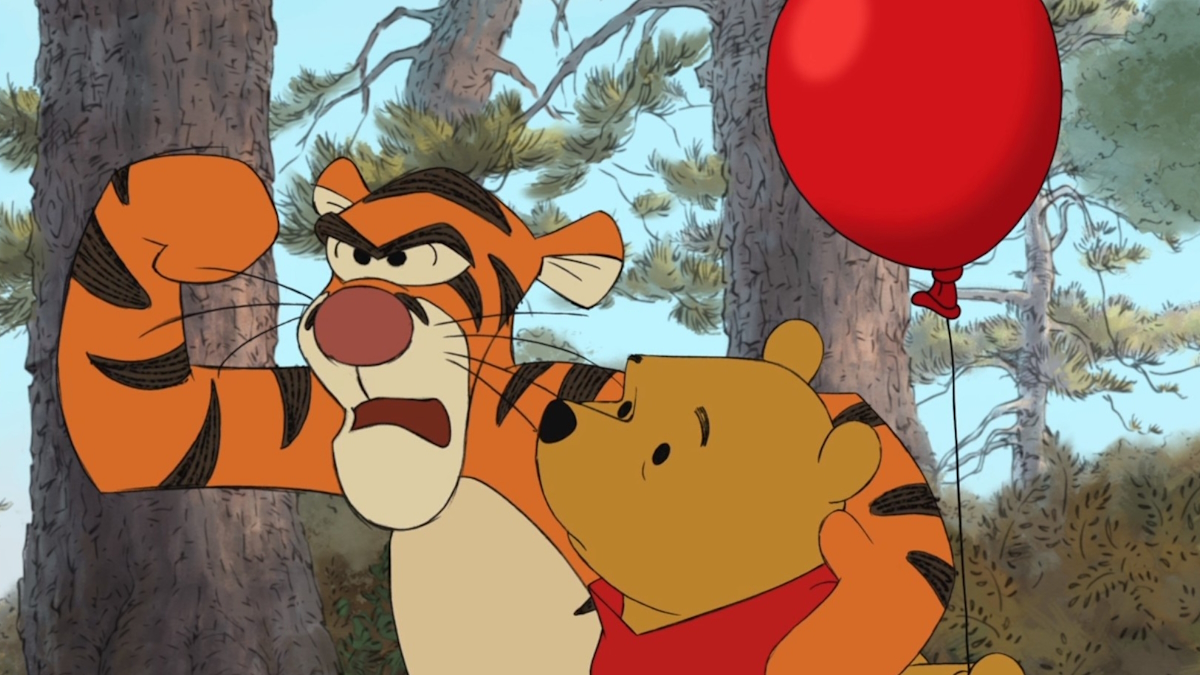
Everyone can find a piece of themselves in the Hundred Acre Wood. Nervous neurotics relate to Piglet, cynics see themselves in Eeyore, and stressed-out type-As may latch onto Rabbit. But then there’s Tigger, an overly confident cuddly tiger toy who bounces around like he’s just downed a cappuccino. His vivid orange fur and permanent smile make him a true fan favorite not just in Winnie the Pooh’s corner, but all throughout the Disney multiverse. Even when his good intentions don’t pan out to actual productive help, you can’t help but love him. Originally voiced by Paul Winchell, voiceover legend Jim Cummings took over the part in 1989, performing double duty as both Tigger, Pooh Bear, and a hundred other characters you know.
8. Peter Pan and Tinkerbell (Peter Pan)
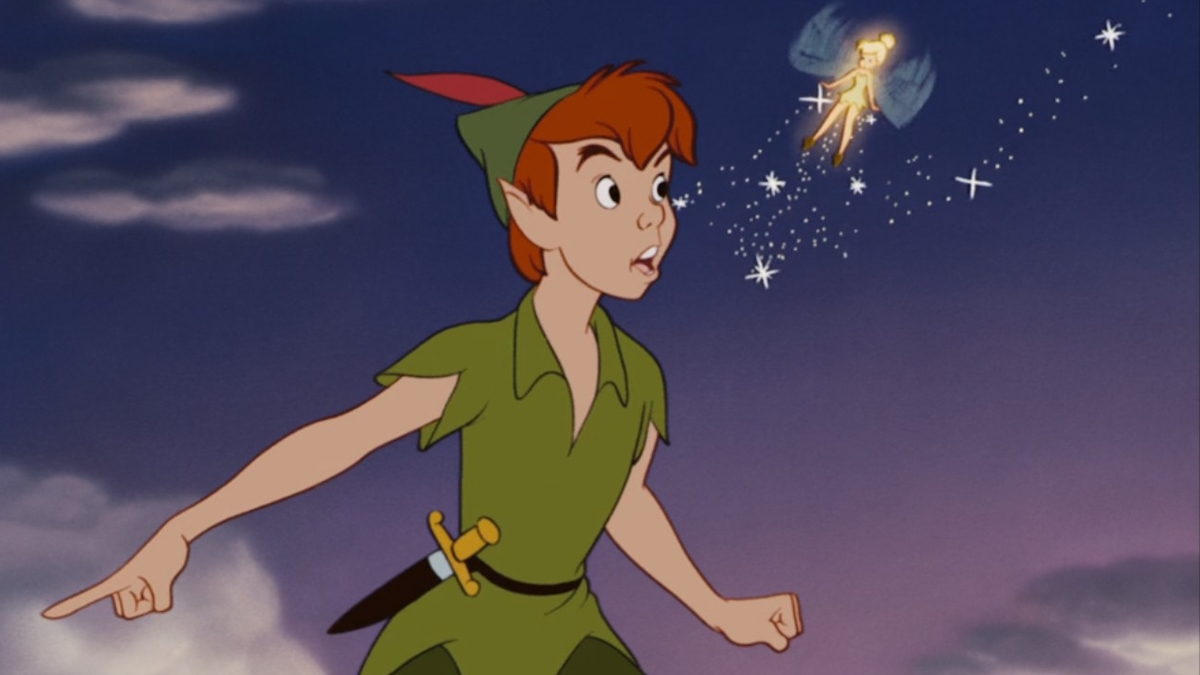
Although they capably stand alone as powerfully iconic characters, Peter Pan and Tinkerbell are unstoppable as a matching set. While Peter Pan represents the ups and downs of perpetual youth, and memorably clashes with the fearsome Captain Hook, his accompanying fairy Tinkerbell has grown into a company mascot. It’s a mistaken legend that the latter of the duo was based on cinema icon Marilyn Monroe; she is in fact based on a composite of dancer Margaret Kerry and Disney employee Ginni Mack, with Kerry providing a body reference and Mack lending her expressions for Tinkerbell’s face. Separated, Peter Pan and Tinkerbell can lead on their own. But together, they represent the combined magic inherent within all of Disney.
7. Donald Duck
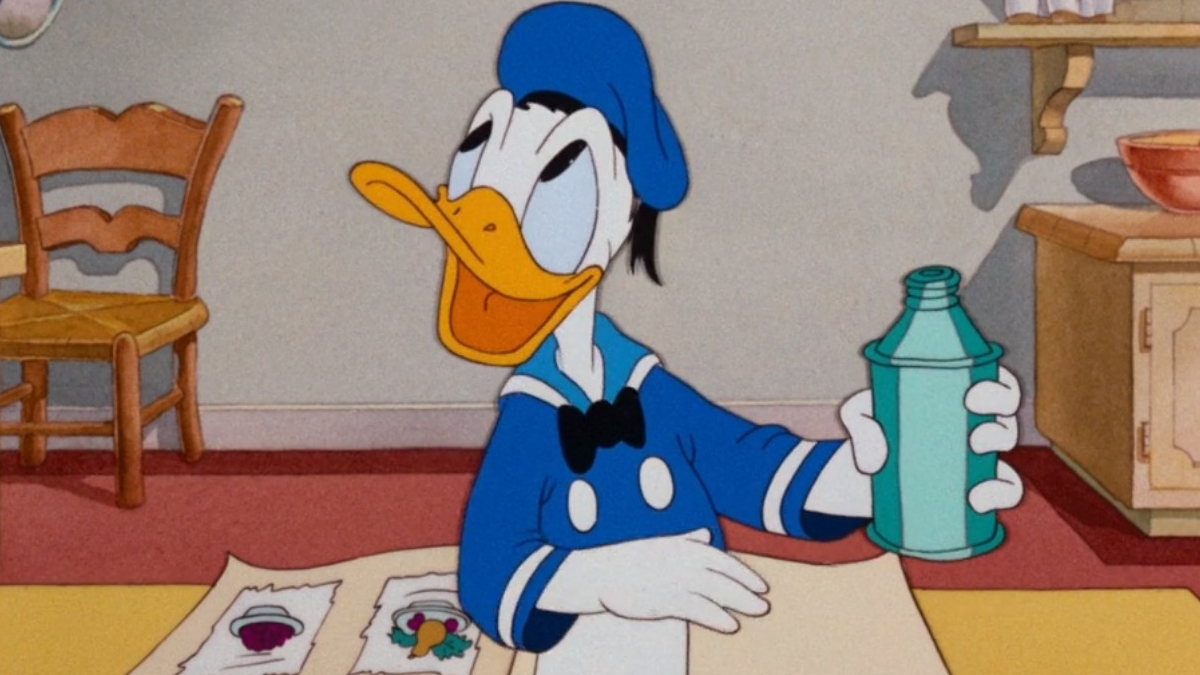
If Daffy Duck represents frustration and unrewarded effort at rival studio Warner Bros., his equal is without question Donald Duck. An anthropomorphic white duck who often accompanies Mickey, Minnie, and the rest of the gang, Donald stands out with his bad temper, pompous personality, and unintelligible voice, which can be played to tremendous comedic effect. Originally voiced by Clarence Nash, he was succeeded by Tony Anselmo (while Daniel Ross stepped in for a single TV series in 2017). None other than Don Cheadle also lent his voice as Donald when Donald ingested a voice modulator to give him a more “normal” speaking voice for a few episodes in the DuckTales series reboot. He’s dressed like a sailor but rarely ever seen manning a boat, Donald enjoys a permanent seat at Mickey’s table for a reason.
6. Scar (The Lion King)
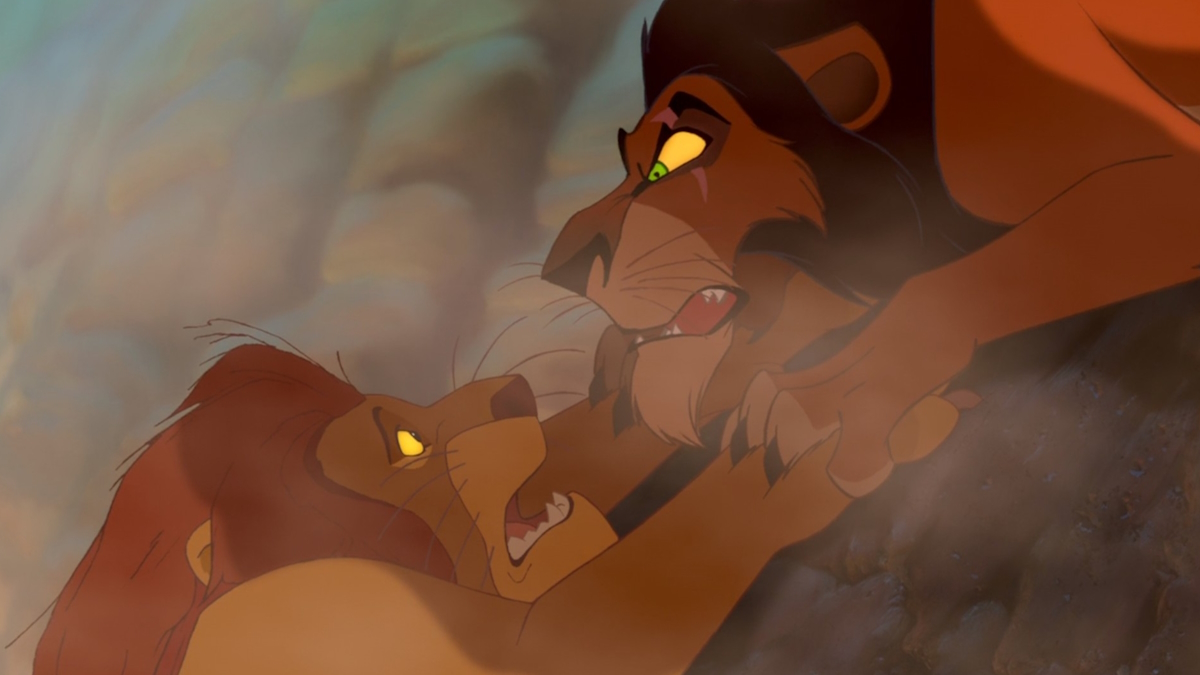
Were you prepared for this one? The Lion King is a giant of a movie, and so much of that is due to the sinister, effeminate lion Scar who is jealous that his claim to the throne is undone by the birth of his nephew. The casting of Jeremy Irons was revolutionary for its time, being an award-winning actor appearing in a children’s film which was unusual circa 1994. (My how times have changed.) Not only that, but Irons actually blew out his voice during the recording of his song “Be Prepared” (and specifically at the line, “You won’t get a sniff without me”), which necessitated recruiting Winnie the Pooh actor Jim Cummings to help fill in. With Scar reminiscent of Irons’ other roles, like Claus von Bulow in the 1990 film Reversal of Fortune, Scar is as emblematic of Irons’ tremendous artistry as it is the collaborative efforts at Disney to create a villain cunning enough to challenge his powerful brother Mufasa. Truly, no one was prepared for Scar.
5. Genie (Aladdin)
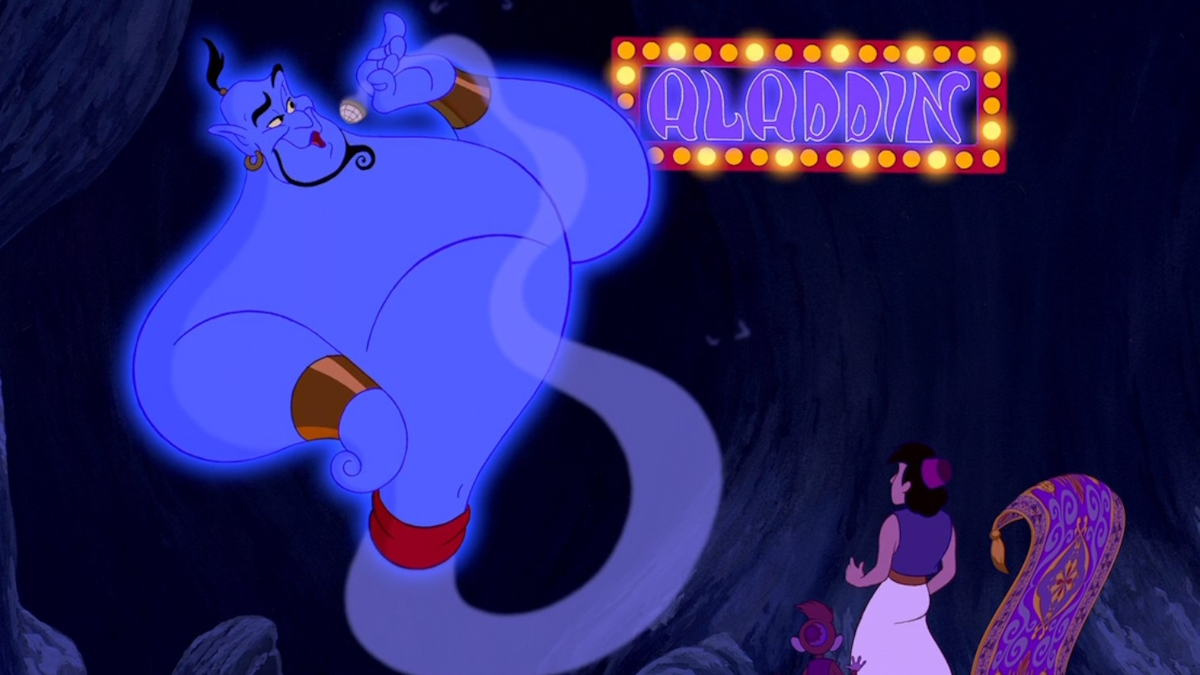
In theory, animation and Robin Williams shouldn’t match. Animation is fundamentally a medium where every on-screen movement is deliberate and so must the dialogue. But Robin Willliams is a pipe bomb of improvisation, his power to unearth new gags at such a pace to induce whiplash from laughing fits. So it was impressive and quite innovative the filmmakers of Aladdin gave Williams minimal direction and free rein to have at it, allowing them to cobble together all the best parts. In between his busy schedule of filming the movies Hook and Toys, Williams’ all-time performance remains more than the gold standard, but the apex of what animation and real, human artistry can achieve. While contractual disputes over the promotion of Aladdin led to Williams and Disney being at odds for a time, Williams’ recording as Genie, including the unused outtakes, is simply part of cinema history.
4. Jack Sparrow (Pirates of the Caribbean: Curse of the Black Pearl)
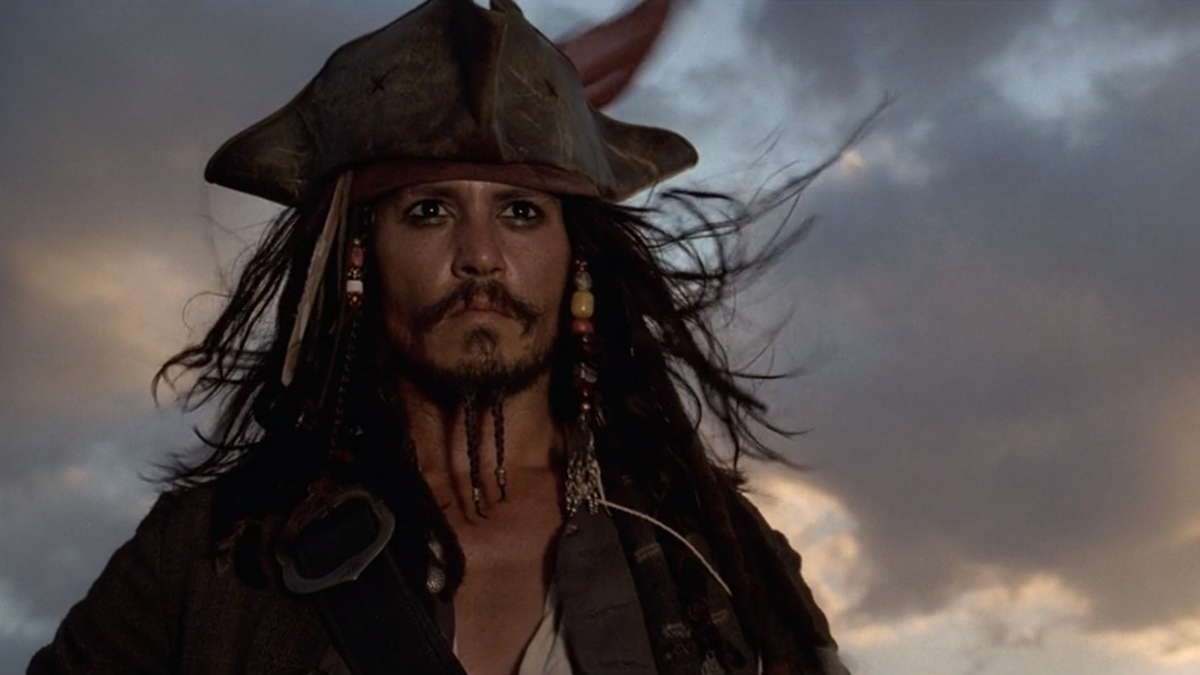
He may be the worst pirate you’ve ever heard, but you have heard of him. Conceived by screenwriters Ted Elliot and Terry Rossio but fleshed out by actor Johnny Depp, Jack Sparrow represents the edgier side to the Disney brand. A fixture throughout the Pirates of the Caribbean franchise – itself an unlikely success, being based on an old ride in the Disney parks – Depp’s initial performance in the 2003 blockbuster Curse of the Black Pearl is outsized, a character who comes to the film so textured and layered that you immediately feel like you know him well. While Depps’ approach to play Jack like a drunk-in-the-sun rock star may have felt worn out by the fourth or fifth movie, his first three movie appearances are everlasting.
3. Goofy
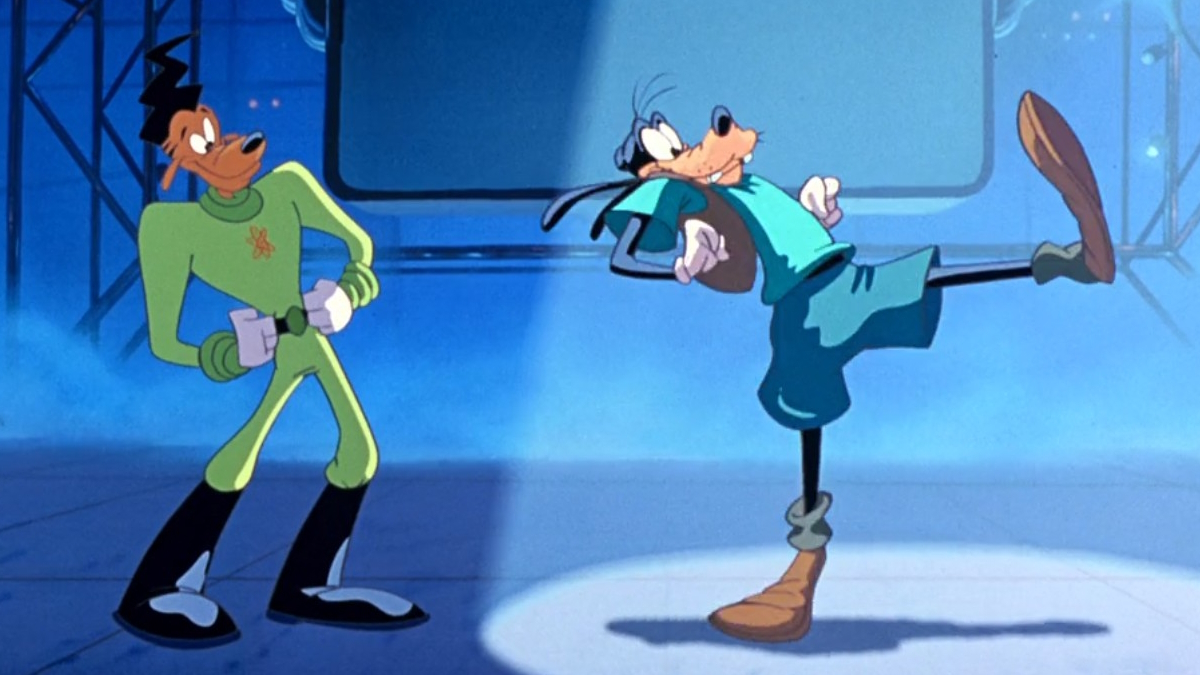
On the surface, Goofy is the kind of character that you would only put up with. His lanky, rubberhouse gait, overall clumsiness, and nonsense catchphrases should make him intolerable. And veteran Kingdom Hearts players will tell you how useless both he and Donald are as NPCs. But of all of Mickey’s friends, Goofy has dimensions few others in Disney are ever afforded. Though he’s a slapstick figure in most Disney media, instances like an obscure 1950 short about road rage or the 1995 film A Goofy Movie – where Max expresses outright embarrassment that he’s his son – hint at dense soil horizons beneath Goofy’s carefree exterior. Sometimes his outwardly happiness isn’t misguided naivety, but a front to mask pain lurking beneath. Goofy may be prone to saying the least helpful things, but you can’t say he’s never been rich with depth. Wait, was this too deep? Gawrsh!
2. Stitch (Lilo & Stitch)
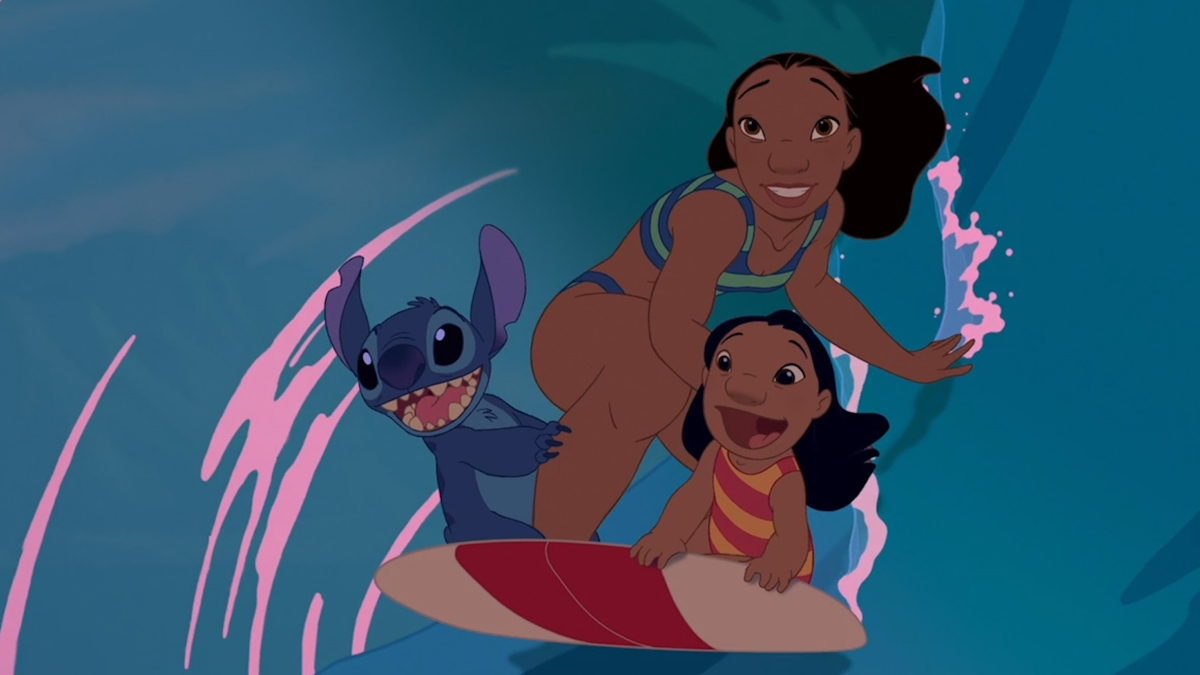
Deep down, we all feel like outsiders. While wanting to fit in and feeling left out is a recurring theme in so many stories even beyond Disney, the 2002 feature film Lilo & Stitch understood that frustration and explored it gracefully and eloquently. (It was also played with in the movie’s wildly clever TV marketing, in which Stitch rudely crashes into past Disney hits like Aladdin, The Lion King, and Beauty and the Beast.) Originating as the experiment “626” by an alien scientist, Stitch’s escape leads him to crash land in Hawaii, where he finds himself adopted as a “dog” to lonely Lilo. Over a beautiful journey, these two misfit outsiders learn to take life each wave at a time and what it means to be part of a family. Family means no one gets left behind, and Stitch is so much a part of Disney’s ohana than his outrageous, feral looks imply.
1. Mickey and Minnie Mouse
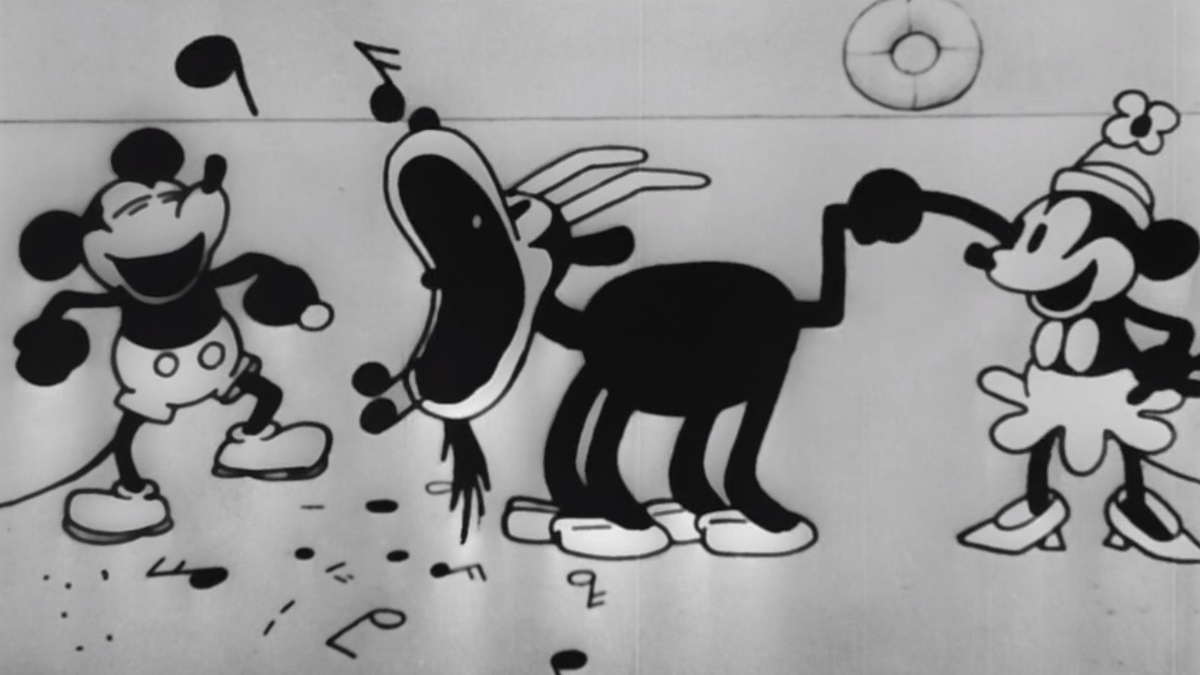
There is just no denying it: Mickey and Minnie Mouse are the greatest characters ever from Disney, bar none. With just three circles (plus maybe a bow) you evoke their silhouettes, which speaks to their entrenched place in both popular culture and in our very consciousness. Mickey is the de facto main character for all of Disney and in fact replaced an existing character, Oswald the Lucky Rabbit (who returned and sought revenge for Mickey’s success in a video game series). Meanwhile, Minnie is a formidable female counterpart, debuting alongside Mickey in the foundational short Steamboat Willie. Together, Mickey and Minnie represent the playfulness and whimsy that powers every Disney project past and present. They have been anything and everything, from boat captains to sorcerers to nightclub owners. But they only ever need to be themselves. Now that’s true magic.







